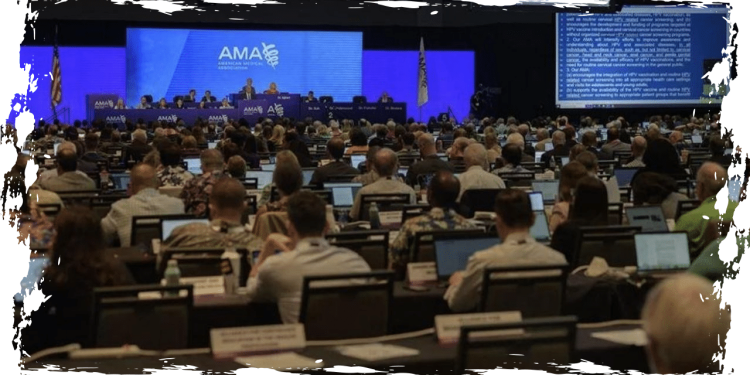The American Medical Association’s House of Delegates made a significant decision by voting 345-171 in favor of decriminalizing drug possession and personal use.
According to Ryan Englander, a delegate from AMA Connecticut, the “war on drugs” can be compared to the saying, “The beatings will continue until morale improves.” He believes that the United States has attempted to solve the substance use crisis by enforcing criminalization for many years, but it has not been effective.
According to Englander, Portugal’s decision to decriminalize drug use has proven to be effective in getting people the help they need and reducing drug-related deaths.
In spite of the opposition from the Board of Trustees of the AMA, the drug decriminalization proposal was passed by the delegates. The board expressed their concerns, stating that “there is a lack of evidence that decriminalizing drug possession offenses would result in any public health benefits.”
Speaking on behalf of the board on Wednesday, AMA President-elect Bobby Mukkamala emphasized the importance of evidence-based policy, stating that at present, the evidence does not support widespread decriminalization.
In the report on drug decriminalization, the AMA has made a revision to the language. It now emphasizes the need for the “elimination of criminal penalties for drug possession for personal use” as part of a greater effort towards public health and legal reforms. The aim is to improve specific outcomes that have been carefully selected.
Stephen Taylor, from the American Society of Addiction Medicine, proposed the revision of language calling for decriminalization.
According to a report from the AMA reference committee, the National Center for Drug Abuse Statistics has stated that around 1.6 million Americans are taken into custody every year for drug-related crimes. Additionally, a recent report from Pew in 2022 revealed that an overwhelming 87% of these arrests were made for drug possession.
According to the Pew report, Black individuals are significantly more likely to be arrested and incarcerated, despite only a 1-2% difference in usage and dependence rates compared to other groups. This inequality has persisted over the course of many years.
According to the AMA report, advocates of decriminalization highlight a multitude of advantages that come with not criminalizing drug use and possession. These benefits include cost savings on incarceration expenses, prioritizing resources towards treatment and social services, and diminishing the stigma surrounding substance abuse and drug use disorders.
According to the report, the AMA is in favor of automatic expungement, sealing, and comparable initiatives concerning arrests or convictions for cannabis-related offenses in cases of legal or decriminalized use or possession under subsequent state legalization or decriminalization of adult use or medicinal cannabis.










